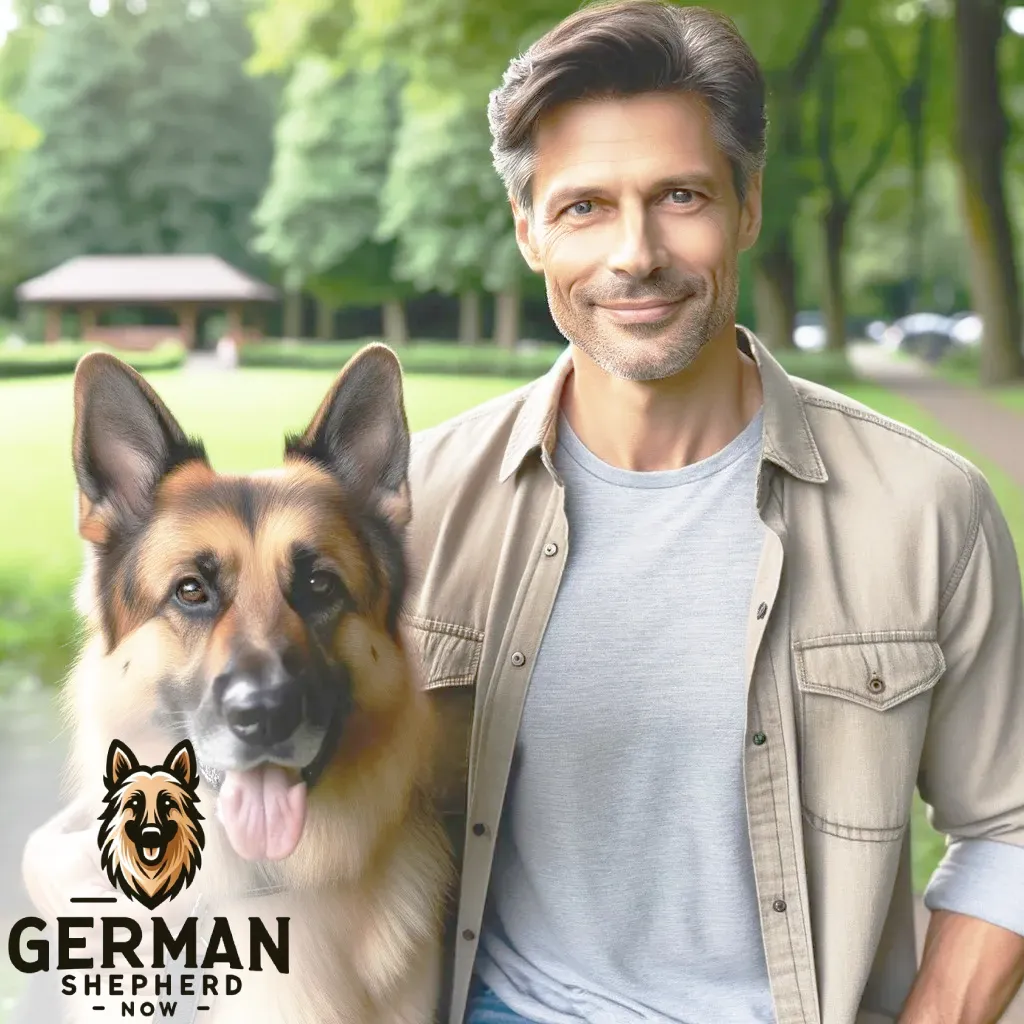Why My German Shepherd is Not Eating

If your German Shepherd is not eating, it could be due to illness, stress, dental problems, a change in routine, age-related factors, or dietary preferences.
Monitoring your dog’s behavior and consulting a veterinarian can help identify the underlying cause.
German Shepherds are brilliant, active dogs that require proper nutrition to stay healthy.
As an owner, you are likely attentive to your dog’s eating habits. So when your German Shepherd suddenly loses interest in food, it can be worrying.
There are several potential reasons why your German Shepherd may have lost its appetite.
By understanding the common causes, you can better evaluate your dog’s condition and determine if veterinary care is needed.
Understanding Appetite Loss in German Shepherds
As a German Shepherd owner, it’s natural to be concerned when your dog suddenly loses interest in food. German Shepherds are known for their robust appetites, so decreased eating can indicate underlying issues.
The following table provides a detailed overview of the various reasons for appetite loss in German Shepherds, along with the signs to look out for and recommended actions to address each situation.
This guide aims to help you navigate through this worrying time and ensure your German Shepherd returns to its healthy eating habits.
| Reason for Loss of Appetite | Description | Signs to Watch For | Action to Take |
|---|---|---|---|
| Illness | Dogs eat less when unwell due to altered energy levels and digestion. | Lethargy, vomiting, diarrhea, unusual behavior. | Veterinary examination and possible diagnostic tests. |
| Stress | Anxiety triggers a fight-or-flight response, affecting eating habits. | Changes in behavior, excessive panting, restlessness. | Identify stressors, provide a calming environment, and consult a vet for severe cases. |
| Dental Disease | Oral pain makes eating uncomfortable. | Bad breath, red/swollen gums, difficulty chewing. | Schedule a dental exam, consider dental treatments, and daily tooth brushing. |
| Age-Related Factors | Older dogs may experience a decrease in appetite due to various age-related issues. | Weight loss, selective eating, difficulty chewing. | Vet assessment, possible dietary adjustments, and senior-specific nutrition. |
| Picky Preferences | Dogs may develop picky eating habits over time. | Refusal to eat regular food, holding out for treats. | Maintain structured feeding times, avoid unique toppings, and consult a vet if severe. |
| Environmental/Routine Change | Changes in surroundings or schedule can impact appetite. | Reluctance to eat, behavioral changes. | Minimize abrupt changes, maintain structured meals and exercise, and vet consultation if needed. |
Illness Can Suppress Appetite
One of the most common reasons a German Shepherd stops eating is because it feels unwell.
Like humans, dogs are less inclined to eat when they don’t feel good. An illness destroys the body’s homeostasis, altering energy levels and digestive functioning.
Some common health issues that may cause appetite loss in German Shepherds include:
- Gastrointestinal disorders – Vomiting, diarrhea, inflammatory bowel disease, or intestinal parasites can all negatively affect appetite.
- Dental disease – Painful teeth and gums may make chewing and eating uncomfortable.
- Urinary tract infections – A UTI can cause pain, frequency of urination, and general malaise.
- Liver or kidney disease – Organ issues like these disrupt the body’s metabolic processes.
- Infection – Bacterial or viral infections often cause lethargy and appetite changes.
- Cancer – Tumors can induce nausea while also metabolically taxing the body.
If your German Shepherd seems ill and has stopped eating, scheduling a veterinary visit promptly is essential.
Diagnostic tests can help pinpoint if there is an underlying medical issue causing the inappetence.
Stress Can Suppress Appetite
Given their high intelligence and active nature, German Shepherds are particularly prone to stress and anxiety. Stress is another common reason for appetite decreases in dogs.
When dogs experience fear, anxiety, or insecurity, their bodies initiate a fight-or-flight response.
Stress hormones like cortisol spike while blood flow is diverted toward significant muscle groups and away from the digestive system.
Everyday stressors that may cause appetite loss in German Shepherds include:
- Adding a new pet or family member
- Loud noises like fireworks or thunderstorms
- Changes to the home environment or routine
- Boarding or kenneling
- Tension due to inadequate exercise or stimulation
If stress is suspected, assess what environmental or lifestyle changes may be causing your dog’s anxiety.
Maintaining structure, offering reassurance, and administering anti-anxiety medication prescribed by your vet can help minimize stress.
Dental Disease Can Make Eating Painful
Given their active, athletic nature, German Shepherds are prone to dental problems like broken teeth, abscesses, and periodontal disease.
Oral pain and discomfort are prime reasons your German Shepherd may stop eating.
Signs that dental problems may be impacting your dog’s appetite include:
- Bad breath
- Red or swollen gums
- Broken or loose teeth
- Drooling or blood in saliva
- Chewing on just one side of the mouth
- Difficulty picking up food or chewing
- Loss of teeth
- Facial swelling
Schedule a veterinary dental exam if you notice any of these symptoms.
Treatment options include tooth extraction, antibiotics, anti-inflammatories, and specialized dental food.
Keeping up with daily tooth brushing can help prevent dental disease down the road.
Age-Related Factors Can Diminish Appetite
For senior German Shepherds, various age-related changes can decrease food intake.
A diminished sense of taste and smell, dental issues, slower metabolic rate, and chronic illness can all have appetite implications.
Signs your senior German Shepherd’s lack of appetite may be age-related include:
- Weight loss
- Limited interest in food or more selective eating
- Difficulty chewing or swallowing
- Loss of hearing, sight, or other senses
- Increased sleeping and low energy levels
- Chronic health conditions
Have your older dog assessed by your vet, who can identify any age-related issues contributing to inappetence.
Adjusting food texture, scheduling, portion sizes, and exercise may help stimulate appetite. Supplements and prescription diets for senior dogs can also optimize nutrition.
Picky Preferences Can Develop Over Time
Some German Shepherds may become picky eaters over time, losing interest in their regular food.
These dogs may start holding out for extra treats, human nutrition, or wet food toppings on their regular dry kibble. This finicky appetite often stems from accidental training by the owner.
To curb picky eating habits:
- Stick to scheduled feeding times rather than leaving food out all-day
- Give your dog 15-30 minutes to eat before taking food away.
- Avoid adding unique toppings or mixes to their meals.
- Over time, your dog will learn to eat a balanced diet.
Consult your vet if picky eating becomes excessive, as it can lead to nutritional deficiencies in the long term if your dog stops eating certain foods.
Change in Environment or Routine
For some sensitive German Shepherds, a significant change to their surroundings or daily schedule can reduce their appetite.
Disruptions to their typical climate, housing, walking schedule, caretakers, or activities can cause temporary stress.
Appetite may decrease for situations like:
- Moving to a new home
- Boarding at a kennel
- Altering the feeding/walking routine
- Traveling or Vacation
- Addition of a new pet/baby in the home
Try to minimize abrupt environmental or routine changes where possible. Maintain structured meals, exercise, playtime, and training. Consult a vet if appetite does not improve after the new situation stabilizes.
When to See the Veterinarian
While temporary appetite changes may resolve independently, seeking veterinary guidance is essential if poor eating persists for over a day or two.
Significant weight loss, lethargy, vomiting, or diarrhea should prompt urgent evaluation.
Diagnostic tests like blood work, urinalysis, imaging, and endoscopy can check for underlying issues.
Treatment varies depending on the cause but may include medication, intravenous fluids, prescription diet, and dental care.
With attentive monitoring and proactive veterinary care, most dogs can recover normal appetite levels after the underlying trigger is resolved.
Stay alert to your German Shepherd’s eating behaviors, and don’t hesitate to call your vet with concerns.
Proper nutrition is essential to keeping your dog happy and healthy.
Concluding My Canine’s Eating Habits
In summary, German Shepherds are prone to appetite changes for many reasons. Illness, stress, dental problems, age, picky preferences, and environmental changes can all diminish interest in food.
Close observation paired with veterinary exams and diagnostics can identify the root cause.
Patience, lifestyle adjustments, medication, and targeted treatment can typically resolve abnormal eating habits.
Prioritizing your German Shepherd’s health and contentment will enthuse their appetite again.
With proper nutrition and attentive care, your dog’s appetite will improve.

I’m Martin, and I grew up in the super cool city of Seattle. You know, the place with all the incredible mountains and forests? Yeah, that’s my playground!
Ever since I was little, I’ve been all about nature. I used to wander around the woods with a notebook, doodling all the cool plants and animals I’d find.
